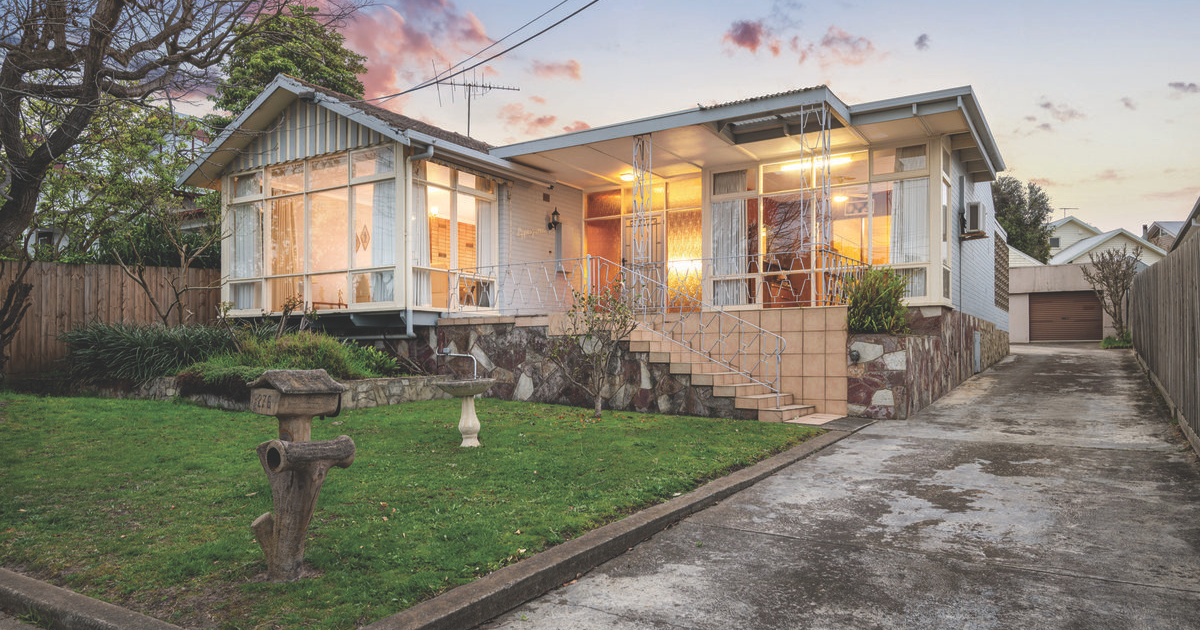Great Ocean Report April 2020: Moving through changes
WITH MARTY MAHER FROM GREAT OCEAN PROPERTIES
As we look back on our last report in February, we were describing a very different scene to what has unfolded since.
Rather than dwell on what we already know and see in the press every day, we thought we would provide what we have seen in consumer behaviour from previous times of crisis. Hopefully for both potential buyers and sellers of real estate this will provide some assistance in planning for their potential future transactions.
Firstly, this is not the first “crisis” we have seen, and it will not be the last. There are definitely down sides but as Winston Churchill famously said “Never let a good crisis go to waste” and we can already see that there can be many positives come out of a difficult time as necessity facilitates new and improved practices.
The co-ordinated response from governments and health authorities have been incredibly impressive and provide an excellent blueprint for future crisis situations. Australia is incredibly lucky to be an island with enforceable borders, a relatively small population and a robust, well-funded welfare system. Our banks are well capitalised and operational, and credit is available. Also not all industries are affected and we have been very fortunate that to date we have not needed Stage 4 restrictions and at writing that looks unlikely.
One thing is obvious and that is that workplaces will likely change for ever. Confidence in remote working and meeting via video rather than in person will have many positive upsides. Less travel and more flexibility of work location has many positive flow on effects in terms of productivity, less traffic congestion, more time with family etc. Not having to meet face to face but still being happy with or trusting the outcome is a significant leap forward. We feel that this will have a significant positive flow on affect for regional and coastal communities who will see people relocate either permanently or semi permanently from the cities. We foresee current lifestyle properties being used more often or for those who want to move, more justification for buying one as they overcome the need to attend an office five days a week. We have witnessed this firsthand during this time with many owners relocating themselves and their families to the coast. None of them look disappointed with their choices.
Looking at the crisis from a macro level we need to keep some perspective. Over the past 27 years working in discretionary lifestyle real estate, we have witnessed many ups and downs. We tend to label the tough times because as humans we like to anchor on negatives but there have been significant periods of prosperity between the list of crises below which curiously we don’t label:
1989-1993 – recession and recovery,
2003-04, – SARS and interest rate rises
2008 – GFC
2010-11 – European debt crisis
2017-18-19 – APRA credit restrictions and the lead up to a federal election
2020 – COVID-19
Plus a myriad of more minor issues in between.
With each of these events, especially according to the mainstream media, the world as we know it was about to end. Everything was a “slump” and an “unprecedented crisis”. As we know in hindsight and in the immortal words of poet Robert Frost: “In three words I can sum up everything I have learnt in life: it goes on”. In reality we are one vaccine away from this ending and the race to develop that vaccine is fierce. Human trials are about to start as we write.
In each of the times listed here, we have recovered as a society, stronger and wiser from the lessons learnt from each “tough time”. In Australia, as mentioned earlier, witnessing the governmental and medical responses to this current event has been incredibly inspiring and the lessons they have and will learn will provide us with a lot of confidence moving forward.
To understand how we come out of this period it is always dependent on human behaviour and it is helpful to understand this to plan for the future. From a consumer perspective and especially in our business, we generally see four stages of behaviour:
Shock phase – people trying to understand what is happening.
Wait and see phase – people wanting to move but taking a wait and see approach.
Like to move/early mover phase – those that would like to move because their situation has changed and those that want to be ahead of the herd to take advantage of opportunities that may present.
Herd starts moving phase – everyone does what everyone else does is a universal rule.
Our reading is that we are at the “wait and see” stage at present as the light at the end of the tunnel is starting to appear. The statistics are moving in the right direction and unless this changes dramatically people will want to get on with their lives and there will be significant pressure on government to facilitate this, even if it is gradual. When signs start to turn positive and a person’s situation becomes clearer this can quickly move to the next stage.
The next stage is the Like to move/early mover phase. This covers those that would like to move because their situation has changed or had already decided to make the move and want to get on with it. This applies to both buyers and sellers and it’s not necessarily about financial distress. It may mean their work situation has changed or become more flexible that they can or need to move and they want to make it happen. We have had many recent inquiries around moving out of the city permanently to the coast because they now can work more remotely and have proven this during COVID-19. The early mover buyer is also looking to avoid competition for a property that often occurs when the herd is fully engaged. When the herd is fully engaged they often have less choice and have to pay extra for properties that have the most appeal.
If you are a seller at present, the key is to price the property fairly. If you are overpriced against comparable data you will be ignored. Our experience is that buyers who genuinely want to move are happy to pay a price that seems fair, especially when they genuinely like the property. We will see the odd bargain hunter appear at these times but in reality very few of them actually buy. Once we have identified this type of buyer we tend to ignore them because they are just annoying to deal with and not in our vendors best interest. Over the years we have seen so many miss good properties because they will just not pay a fair price on principle. The market moves forward and they just simply miss out.
We hope you found this Great Ocean Report informative, and if Great Ocean Properties can be of any assistance in any real estate matter please do not hesitate to call.


















